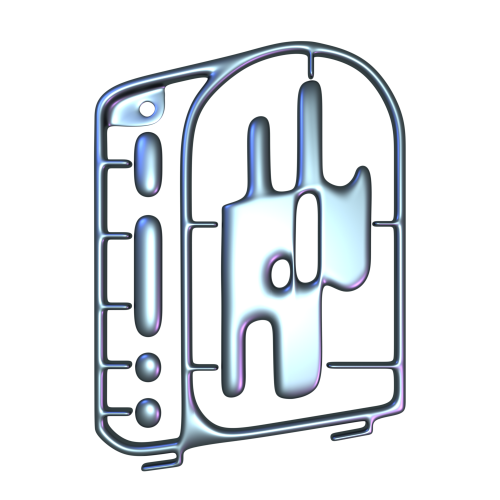
Karen Vestergaard Andersen and Nina Wöhlk
ARIEL Directors (UK)
ARIEL - Feminisms in the Aesthetics is a nomadic platform for intersectional feminist practices, originally situated in the Women's Building. ARIEL is a mobile and digital archive, publishing house and exhibition project, committed to supporting existing and facilitating new structures of care and sustainable collaborative practices, expanding notions on equity and the eco-commons through feminist curatorial practice and research.Directed by Karen Vestergaard Andersen and Nina Wöhlk, in collaboration with Helen Nishijo and Frederikke Granvig.
---
[...]
What does the word tokenization mean to you? And what curatorial methods have you put in place to avoid it?
There are so many understandings of tokenization.
The interesting bottom line is to look at the nuances and ask yourself questions e.g: who we ( as an institution) are in the situation, what is the power dynamic, what is the act? What is our role? Who are we presenting, standing for, in some cases representing?
What are our own biases and what are our own presets about things? In regards to tokenization it's problematic in Denmark, that some, especially, larger institutions use people's practices to build up 'enlightened public programming'.
On the side of the artists it's about being aware of the mechanism of tokenization. This means that as an artist, you agree to be part of an institutional programme because of many reasons, eg. bigger audience, bigger funds. You get that on your resume then you move on to another bigger institution with more funds, to continue your practice. But really as an artist you wish to be part of a programme because of the quality of your work, not simply because of the form of 'othering' you represent.
This is the power that the institutions are holding. We need to be better at asking the tougher questions: In what way are the institutions aware of the misuses that are happening? --and are they invested in looking at their operations in a new critical light, and taking actions accordingly?
At ARIEL, as an independent organisation, we really try our best to operate in a different manner. First of all, clearly, we stand for something different. We are a feminist platform, this means that we believe and work for a sustained engagement with questions around care, equality, equity, ecology and the commons - what are challenges as citizens of this world? So naturally, the artists who will gravitate towards us and who will collaborate with us as part of our program and networks expect a completely different type of framework and interaction.
For us there are some really essential things that need to be there in order to avoid tokenizing groups, reduce/ bring more awareness about power dynamics and have sustainable, meaningful programmes.
First of all, situating ourselves: understanding the relationships we are part of and what role we have in those relationships, our privilege and our gaps, patterns etc. This is a process that requires time - which is also a very important resource, often impacted by income. It's a privilege to have it but it's also a necessity, to organise, internally: so you can be clear about what you stand for, your vision, and also understand and articulate when and how that changes.
Clarity and transparency are also key factors, especially with regards to vision, processes, policies, placement in the landscape with the other actors, funders etc.
We found that if this is all stated clearly and publicly with no ambiguity, freedom can be granted to the artistic practices: The aim is that the artists are more able to do what they want and make it easier to navigate for them fx. when the institution is strongly positioned through sustained engagement with specific practices.
If a group joins an institution feeling like the institution's vision is in line with theirs, and it's positioned in a way that understand, support and advocate for that minority for example, then they will have the freedom to get on with the work they want to do rather than defining their own position inside the institution - which is what most commonly happens.
Another 'method' or way of operating in this sense would be making sure to pay people and caring for them. We won't expand on payment as it's so obvious but care - this is a term we've heard a lot about and we would like to specify that that can come into practice in different ways, from paying people to mental health support and project development etc. Additionally, it's crucial to look at what resources are needed for a collaboration, and again being transparent and speaking clearly about things like budgets and context with the artists. Consequently, being critical of the internal way of operating is key - keeping in mind who you are as an institution, what you can offer, what is the support you might need to source outside of the organisation, how is what you're doing generative of sustainable solutions to the problems posed by artistic research and practices. For us this is the foundation of what we do.
We try to explore how activism looks as research in public programmes - how can a programme be an open, active process? For example we often hold reading groups, and what happens when we read together is that a safe environment is created for everyone to express themselves and relate to books - and not all the participants are accustomed to reading much for example, that can be quite a generative process; we regularly invite others who might be better equipped to challenge some things better than us.
What does feminist or queer curating mean to you?
It means all of the above practices and expands through always situating ourselves, creating collaborations, feeling positive and happy for each other in a really constructive type of competitiveness (almost like a kind of sisterhood), backing people up when needed, looking out for each other, long term.